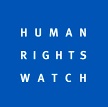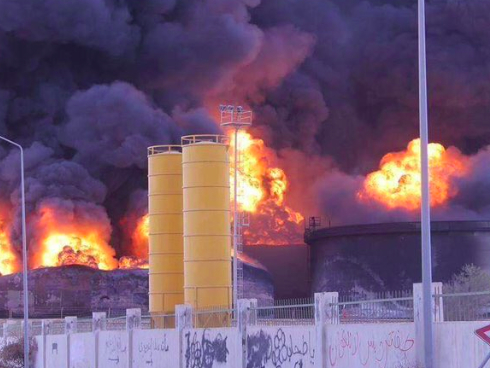By Libya Herald reporters.

Tunis, 8 December 2015:
Human Rights Watch, which in the summer published . . .[restrict]a highly critical report on conditions in prisons in the government-controlled east of the country has produced a no-less damning assessment of the treatment of prisoners in four detention centres that it visited within Libya Dawn territory.
Two HRW investigators discovered widespread use of torture and abuse, including of children, Draconian prison regimes, insanitary conditions and multiple failures of due process. Only a fifth of some 2,500 people incarcerated by Libya Dawn had received any sort of trial and sentencing. The great majority had spent up the four years in pre-trial detention, often without ever being charged with an offence, let alone being brought before a judge.
In its report HRW warns “Prolonged detention without judicial reviews is a grave violation of international law and may amount to a crime against humanity”. It attributed the lack of proper trials to a breakdown in law and order because of the continuing conflict and instability.
The four prisons visited were Ain Zara and Al-Baraka in Tripoli and Al-Jawiyyah and Al-Huda prisons in Misrata run by the Judicial Police who report to the Tripoli Justice ministry. No officials were present at the interview with 120 prisoners, of whom only 19 had been sentenced, five of them to death.
Most of the inmates had similar stories of torture upon their arrest, during their questioning and at various points during their later detention.
“Detainees, including children, in all of the facilities visited provided credible and consistent accounts of ill-treatment,” said the report, “in some cases apparently visible to researchers, such as beatings on the soles of the feet with plastic pipe, electrical cable, chains, sticks, fists and even horsewhips; suspension from doors or ceilings for hours; electrical shocks and being held in solitary confinement for up to seven weeks, which may amount to torture in certain circumstances”.
HRW was widely critical of the conditions in which prisoners were held. Misrata’s Al-Huda was said to be overcrowded, had broken sinks and lavatories, unguarded stairwells and poor hygiene as well as damp cells, arising from poor ventilation. There were general complaints about poor quality food, a lack of decent drinking water and the prohibition of tobacco and music. These charges were particularly true of Al-Huda prison, where music, card games and TV were also banned. Inmates found with cigarettes or secret radios received harsh punishments.
When HRW published its report on prisons in the east of the country, the government denounced its findings as unrepresentative. The Libya Dawn administration of Khalifa Ghwell has not yet made any formal response to the research. On source close to Libya Dawn maintained that given the instability in the country, the conditions in the jails were actually quite good.
HRW was told by the Tripoli-based general prosecutor, Ibrahim Bashiya that torture could not be condoned. However, he insisted: “there is torture in most prisons around the world, in particular against rebellious detainees”.
Mustafa Al-Ghleib, Ghwell’s justice minister, one of only four of his cabinet to survive its recent miniaturisation. told HRW that if he was told about misbehaviour, he would take action against any prison officials found guilty and would ensure that they were punished.
The full report, entitled “The Endless Wait: Long-Term Arbitrary Detentions and Torture in Western Libya”can be found at http://hrw.org/node/283978 . [/restrict]







